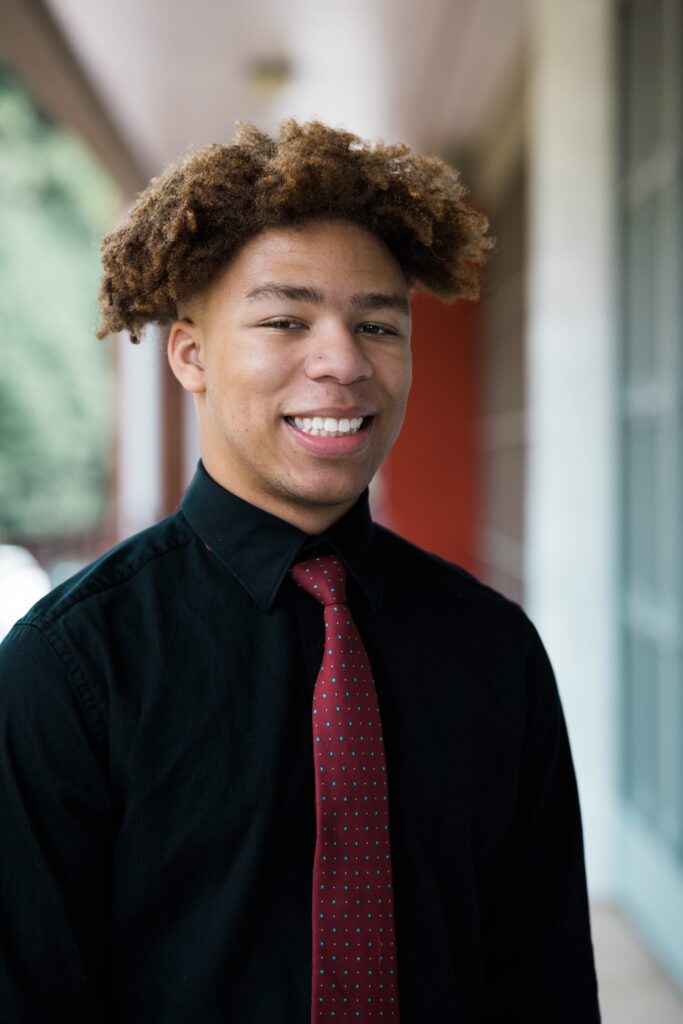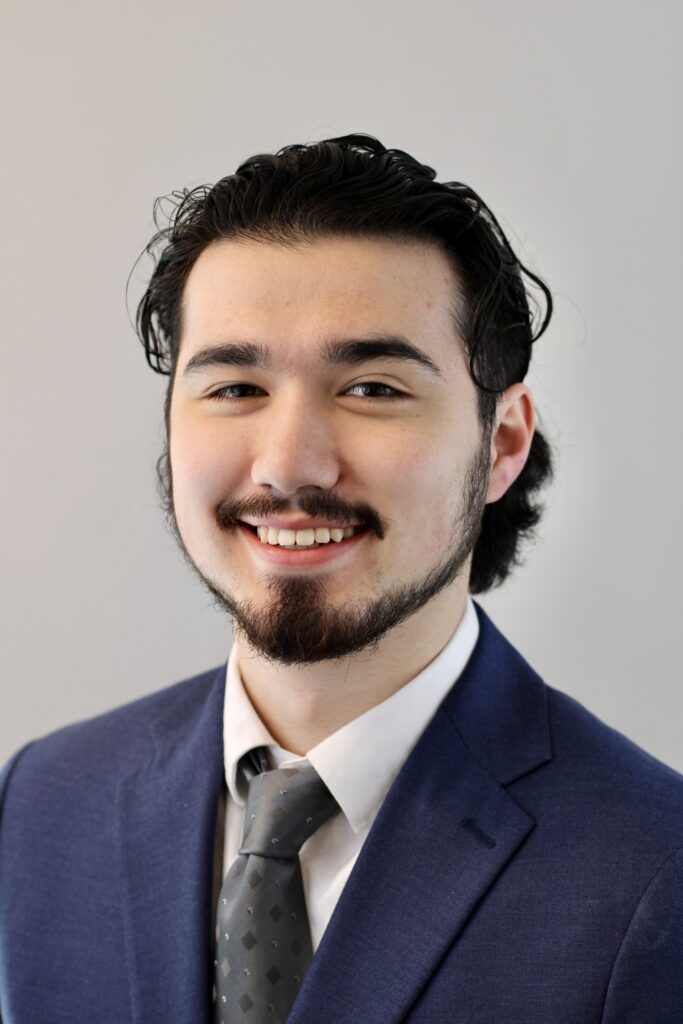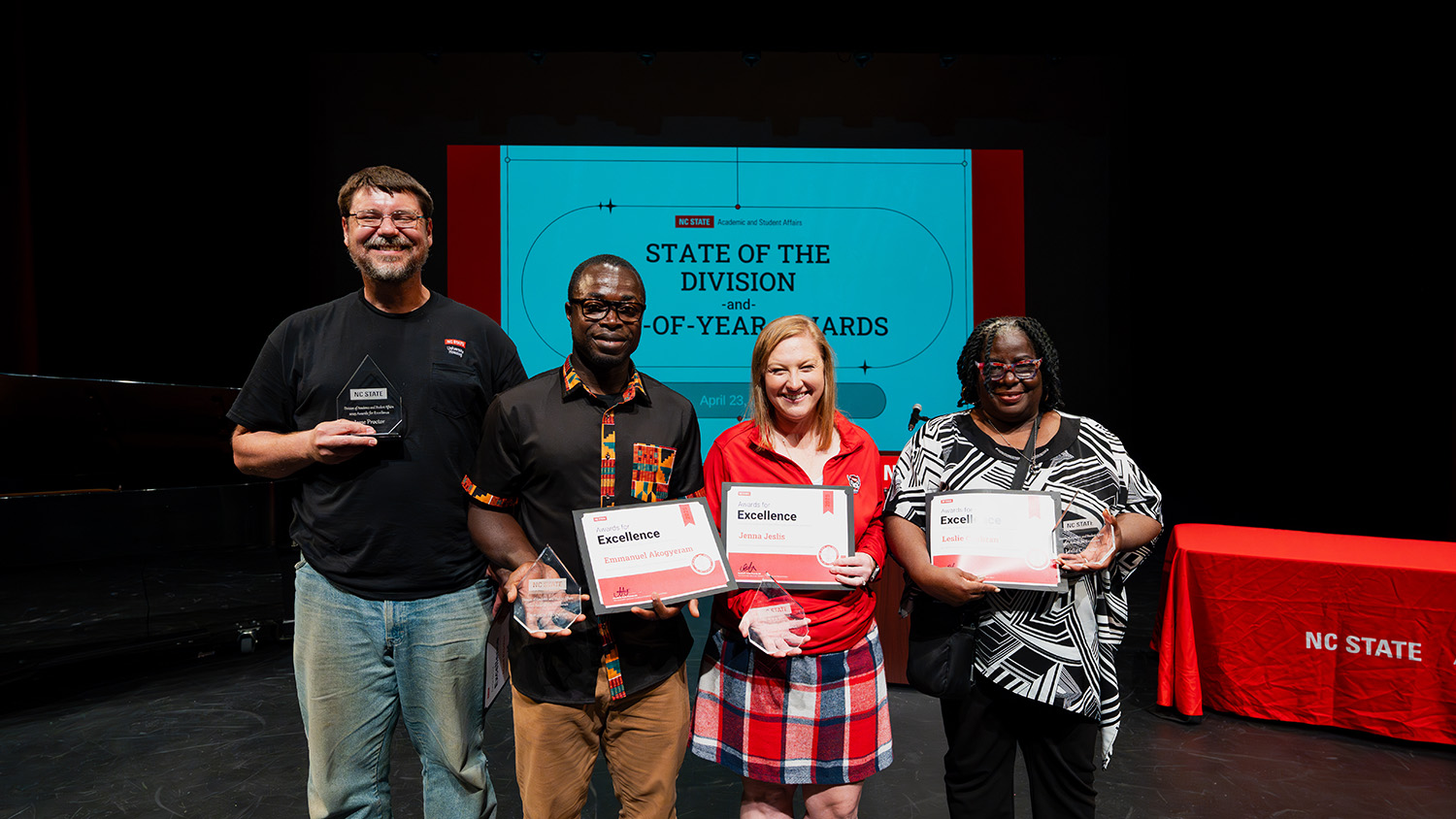University Fellowships Office Announces Critical Language Scholarship Winners
Three NC State students have been awarded scholarships that will allow them to immerse themselves in the culture and language of another country.

The NC State University Fellowships Office is pleased to announce three recipients of the 2022 Critical Language Scholarship: Joshua Mason, Anthony Ramsey and Natalya Wilson. The awardees were chosen from a pool of over 4,500 applicants from 583 different higher education institutions.
The Critical Language Scholarship (CLS) program is an intensive overseas language and cultural immersion program for American students enrolled at U.S. colleges and universities. Students spend eight to 10 weeks abroad studying one of 15 critical languages. The program includes intensive language instruction and structured cultural enrichment experiences designed to promote rapid language gains and cultural fluency, while building relationships between people of the United States and other countries.
More than 50,000 academic and professional exchange program participants are supported annually by the U.S. Department of State’s Bureau of Educational and Cultural Affairs. Part of the bureau’s mission is to increase diversity among international educational exchange program participants and promote mutual understanding and respect between the people of the United States and the people of other countries.
The University Fellowships Office provides helpful assistance for students applying for the Critical Language Scholarship as well as other prestigious national and international awards. Learn more on their website.
Meet this year’s recipients and read what this experience means to them, in their own words:
Anthony Ramsey (Arabic)

What is your experience with the Arabic language and why do you want to learn more?
My previous experience with Arabic is from a program similar to the one I am completing with CLS. In high school, I applied for a program with the National Security Initiative for Youth and traveled to and lived in Morocco for two months. While there, I studied Modern Standard Arabic, the regional Moroccan dialect, Darija, and other cultural aspects that are tied to Arabic such as religion, history and society. This experience lit a fire in me for language learning that I did not have when I studied Spanish in high school. I was intrigued by Arabic and wanted to learn as much as possible of the language so that I could interact with people who have lived unique lives to mine. Along with that, I wanted to be able to study the history of the region and other cultural aspects that involve language.
What motivated you to apply for the Critical Language Scholarship? And what does it mean to you to receive it?
My previous endeavors in Morocco inspired me to apply for CLS because I wanted to get another experience similar to my program in Morocco. I found that for me language is best accrued when I am able to apply and activate it in a setting where I can constantly use it. I believe that this is the best method of learning for me, and so I found it very important to pursue a program similar to Morocco that allowed me to gain language proficiency and learn more about Arab culture.
What do you hope to do with your degree after graduation?
Right now, I am not sure where my degree is going to take me. I am currently pursuing other government scholarships that could open me up to opportunities, and I am also looking into grad schools. Most of all, I aspire to use my language skills to learn the history of certain regions and use it to be a mouthpiece [for] those who are not listened to. I want to empower individuals and be a mouthpiece to their voices because they deserve to be heard.
Do you have any advice for other students who are thinking about applying to programs like this?
My advice to other students would be to give it your best shot, try just to see if you can score. I genuinely did not think I would be in this position, but I tried three times with the last attempt rewarding me. All one has to do is put their best foot forward and show a genuine interest in a critical language with a desire to take that interest farther than the summer one studies the language. Give the application reviewers a reason to take pause at your application, and I guarantee something will come out of it.
Joshua Mason (Chinese)

What is your previous experience with the Chinese language and why do you want to learn more?
I am from the Twin Cities, Minnesota, and started learning Chinese in kindergarten as I was fortunate to attend the first Chinese immersion charter public school in the United States: Yinghua Academy. I went on to continue learning Chinese in a new pilot Chinese immersion program at Highland Park Senior High as well as additional Chinese classes at the University of Minnesota Twin Cities. I seek to continue learning Chinese because it has been a major part of my educational experience and continues to open amazing opportunities that are exciting.
What motivated you to apply for the Critical Languages Scholarship? And what does it mean to you to receive it?
My primary motivation to apply for the CLS scholarship was to reintroduce Chinese learning into my educational career path as a major component. I’ve had my hands tied with my computer science and economics majors and have not had the opportunity to study Chinese at NC State as I had hoped to. It means a lot to me that I will have the opportunity to be dedicating my studies to Chinese learning this summer.
What do you hope to do with your degree after graduation?
As a rising junior, I am still figuring out the finer details about my career post-graduation. One thing I know for sure is that the U.S. and China are both leaders in technology. With my computer science degree and background in Chinese, I see many opportunities to use these to work in a role that has responsibilities in both tech and U.S.-China relationship building.
Do you have any advice for students who are thinking of applying to programs like the Critical Languages Scholarship?
Go for it! Critical languages are considered critical because not enough people are learning the language. Prior language knowledge is not required for many of the languages offered. If you have an interest in one of the languages, the CLS scholarship is a resource meant to support that interest.
Natalya Wilson (Russian)
***Natalya has decided to withdraw due to current tensions in Russia, but as a campus community we still are proud of her and all of the work she has done and will continue to do.
What is your previous experience with the Russian language and why did you want to learn more?
I am a heritage speaker of Russian and I started studying the language to improve my understanding of the language and to improve my conversation skills. In high school I was selected for the National Security Language Initiative for Youth (NSLI-Y) and studied the Russian language in Narva, Estonia for a summer. I want to learn more as maintaining language skills requires constant practice, and I still have a lot to learn to be proficient in the language.
Why did you apply for the Critical Language Scholarship and what does it mean to you to receive it?
I applied for the CLS for a great opportunity to study abroad and to gain more experience with my target language. As someone who has studied abroad in a similar program, I know the value of experiences like this in improving my language skills. Receiving the scholarship was an honor as it supported my goals in promoting intersectionality between STEM and language learning, and I was honored to be able to study abroad with a diverse group of people and learn more about the country I would have studied abroad in.
What do you hope to do with your degree after graduation?
I am currently studying for a B.S. in physics and a minor in technical communication, while also studying the Russian language through UNC. I still do not know the specific path I will take after graduation, but I would like to work with physicists internationally in collaborative work, an example being with the international space program. The overall goal I would like to fulfill with my work is to be able to work in physics while also effectively communicating in multiple languages and connecting with others through a mutual passion for physics.
Do you have any advice for other students who are thinking about applying for programs like the Critical Language Scholarship?
Some pieces of advice I would give are to use the resources provided by the university and to have a clear focus as to why you are applying. For that first point, I found the feedback provided by my recommender and the graduate fellowship advising group greatly improved my application for the program. For the second, it is important to have motivations for learning your language related to your overall goals. I found that as an applicant in STEM my connection to learning language is less common in comparison to the majority of applicants. Even if you are not in STEM, having a strong reason or goal for studying your target language will be beneficial for this scholarship.


